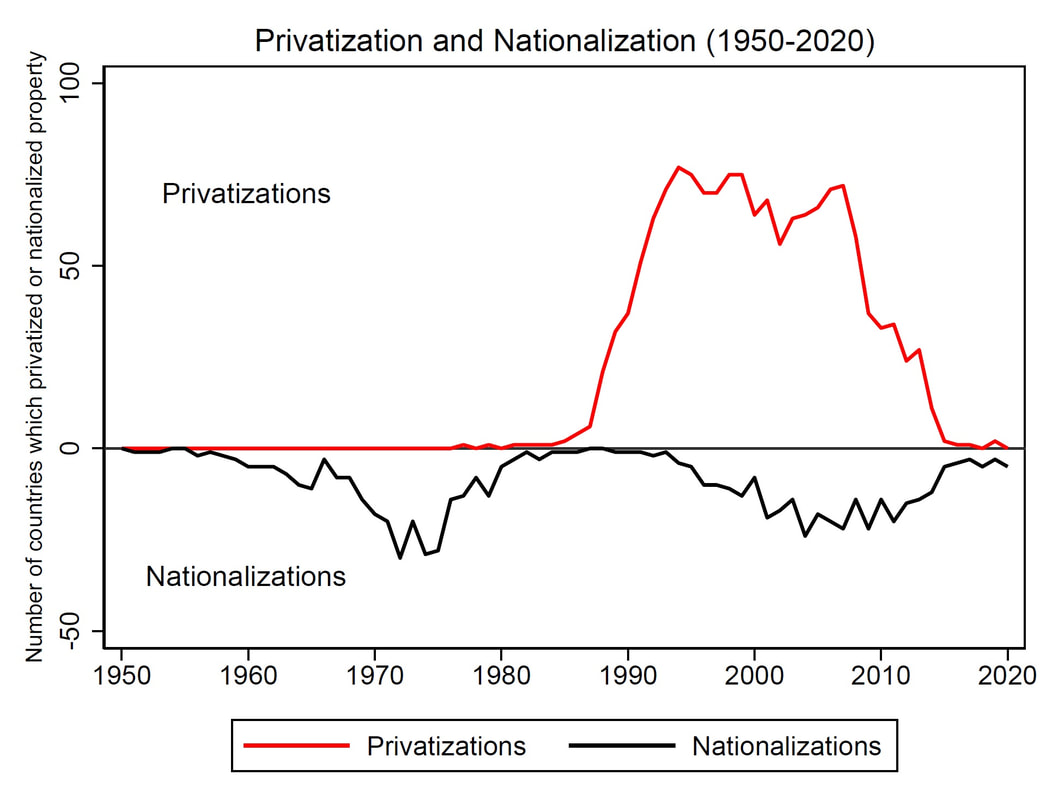Privatization-Nationalization Waves
Privatization, Nationalization and Back Again. The Politics of Economic Policy Reversal [book project and article]
Abstract: Exploring the state's presence in the economy through the processes of privation and nationalization has resulted in two opposing views of these phenomena: an almost exclusively economic examination of privatization as a process meant to remove the state out of the market where politics plays no role, compared to a politics-centered exploration of nationalizations analyzed as a reassertion of state power where only politics matters. This project argues that the two processes need to be studied together since historically privatizations and nationalizations occur in cycles. By refocusing the study of these processes on the politics that motivate the choice to privatize or nationalize, this project finds that the interaction between the preferences of domestic coalitions of actors and international economic conditions explains privatization-nationalization cycles. The paper illuminates the undertheorized link between these two processes, but it also introduces a dataset that brings together for the first time data on both privatizations and nationalizations that have occurred since World War II.
(Presented at ISA 2016, APSA 2017, ISA 2019)
Additional materials
(Presented at ISA 2016, APSA 2017, ISA 2019)
Additional materials
